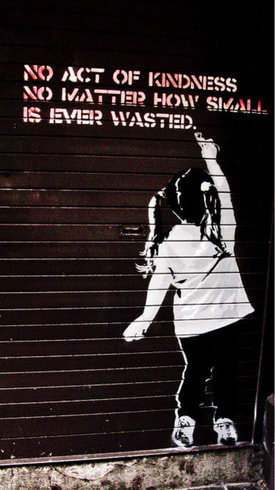|
Peace Partners is supporting The Prem Rawat Foundation (TPRF) Morocco Earthquake Relief fundraising appeal.
TPRF will provide an initial humanitarian grant of £40,000 ($50,000) to help victims of a devastating recent earthquake in Morocco. Additionally, TPRF will match pound for pound any contributions received for the humanitarian effort, adding to the overall aid that the foundation will provide. To learn more visit: tprf.org/humanitarian-aid-for-morocco-earthquake-victims If you are a qualifying UK taxpayer, any donation you make can be increased by 25% through Gift Aid . Please indicate you wish us to collect Gift Aid when you donate. All funds raised for this appeal will be passed in full to TPRF. Thank you, The Peace Partners team
0 Comments
He always emphasised non-violent protest, and engaged in education and dialogue to further his work of bringing about an end to the deep divisions in his country. He became known as the voice of the voiceless Black South Africans, and was constantly encouraging reconciliation between the various factions of Apartheid. Underpinning this belief that resolution can always be achieved through sincere and honest communication, he would often refer to the concept of Ubuntu, which he has described as South Africa’s gift to the world. He explains it as follows:
“Ubuntu addresses a central tenet of African philosophy: the essence of what it is to be human. The definition of this concept has two parts. The first is that the person is friendly, hospitable, generous, gentle, caring and compassionate. In other words, someone who will use their strengths on behalf of others - the weak and the poor and the ill - and not take advantage of anyone. And because of this, they express the second part of the concept which concerns openness, large-heartedness. They share their worth. In doing so, my humanity is recognised and becomes inextricably bound to theirs. In this way a person is a person through other people. We need other human beings in order to be human and because we need each other our natural tendency is to be cooperative and helpful. If this weren’t true we would have died out as a species long ago, but we haven’t. Those who seek to destroy and dehumanise are also victims – victims usually of a pervading ethos – be it a political ideology, an economic system or distorted religious conviction. If I diminish you, I diminish myself, Ubuntu points out. But we have kept on despite the evil and the wars, we have kept on because we strive for harmony and community, a community not only of the living but also one that honours our forebears. This link to the past gives us a sense of continuity, and a sense that we have created and create societies that are meant to be for the greater good and try to overcome anything that subverts that purpose. Our wars end; we seek to heal.” Desmond Tutu’s legacy is undeniable and although he is no longer here in person he continues, in the spirit of Ubuntu, to inspire through the universal truth of peace and goodwill. Here in Britain, the Tutu Foundation UK is a charity whose mission is to prevent and resolve conflict, to help build peaceful communities across the UK, by providing facilitation and mediation services based on the principles of Ubuntu. The Ubuntu Round Table Project helps young people manage conflict with the Police. An essential element of this project is that it is Youth led and is designed to enable and empower young people to take control and organise. It evolved out of Conversations for Change, which is a community peace-building programme. In 2019 Peace Partners was honoured to collaborate with the Tutu Foundation UK in hosting workshops and presentations led by Project team members. A birthday message read at King's College Cambridge last year, on the occasion of the Archbishop’s 90th birthday, included these heartfelt tributes “You erected a beacon of hope and human decency to counteract the inevitable tidal wave of the past which threatened to overwhelm the Rainbow Nation … You communicated to the world your message of peace and love. And you inspired the youth with your transcendental message of hope and infinite human potential … You helped us laugh at ourselves and showed us through your example how to love one another” The song ‘The Calling by Eric Clapton and Carlos Santana’ calls from the heart of Ubuntu. Music link: https://www.youtube.com/watch?v=15DEYyFPypI Written by Geri Andrews
Groups and individuals are encouraged to go out of their way to be kind to others, be it at home, work, school or just out and about. Every kind act, however small, matters and creates a ripple effect because essentially it is kindness that binds people together. In a world where a lack of kindness can seem so prevalent, it is a relief to be reminded that human nature is compassionate and caring and that being aware of this and putting it into practise in everyday life is to be true to oneself. Interestingly, the origin of the word kind comes from Old English: ‘gecynd’ meaning natural, innate, native. In its original sense it was used to mean ‘nature, the natural order’ and also ‘innate character form or condition’. This poem describes kindness as a fundamental quality in human nature: Kindness, innate in the human heart, Is an act of care for another, Natural, as is the love of parent for child. Devotion is the well-spring from which it flows, Nourishing giver and receiver alike to feel Empathy, and see one’s own self in another, Sensitively expressing a common bond that’s Shared without thought of gift or reward. Kindred spirits are we all, kith ‘n kin, Interconnected through thought, word and deed. None is exempt from the laws of cause and effect, Defined as we are by the realm of consciousness. Nurturing compassion is the remedy that Elevates mood and lifts an experience by Satisfying the need for contentment, in the Service of heartfelt love and affection.
|
Categories
All
|
|
©Peace Partners. All Rights Reserved.
Peace Partners is a UK Registered Charity No. 1166456 Institute of Fundraising Organisational Membership No: Z1038713 Website last updated - 19th May 2023 |





 RSS Feed
RSS Feed